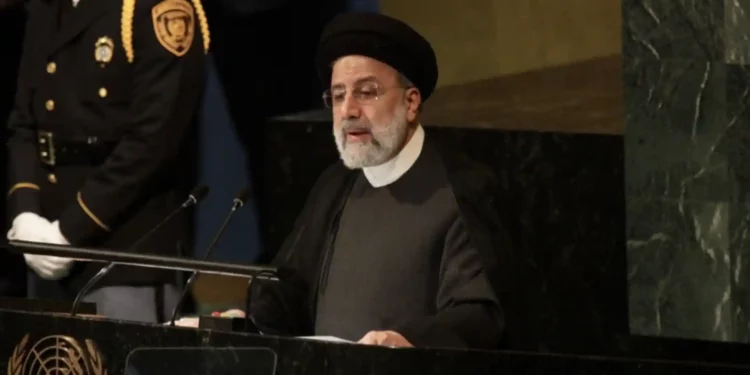Iran announced a five-day mourning period following the passing of President Ebrahim Raisi, Foreign Minister Hossein, and other Iranian officials who were killed in a helicopter crash. Several Iranians rushed into mosques and squares on Monday to pray for the officials.
The tragic death happened when the helicopter carrying the officials crashed in poor weather conditions in the mountains close to the line with Azerbaijan. According to the official IRNA news agency, Supreme Leader Ali Khamenei, who holds the ultimate power and has the final say in Iran’s nuclear program and foreign policy, announced that First Vice President Mohammad Mokhber will take over as interim president.
“I announce five days of public mourning and offer my condolences to the dear people of Iran,” Khamenei stated. Mokhber, like Raisi, is viewed as near Khamenei. The bodies of Raisi, 63, Amirabdollahian, 60; and the other officials and staff were being transported to Tabriz, the capital city of Iran’s East Azerbaijan province. According to Iranian state television, victim’s funerals will coincide with the closure of all government offices and private businesses on Wednesday. Raisi will be buried in Mashhad, the place where he was born on Thursday.
The families of the Iranian leaders have received condolences from the leaders of China, Russia, the United States, and the European Union. A decision to conduct another election has been made and it will occur on June 28.
Political Changes
Until the nation heads for the polls in June, Mohammad Mokhber will administer the country as interim president, and Ali Bagheri Kani will act as foreign minister.
Reza H Akbari, Middle East, and North Africa programme manager at the Institute for War and Peace Reporting, told Al Jazeera that the more right-leaning conservatives in Iran are currently in control of the judiciary, the legislative branch, and the executive branch. “So some analysts believe Raisi’s death may open up room for more traditional conservative [candidates] to make an attempt at the office of the presidency.”
“The National Security Council in Iran, the supreme leader and, when it comes to certain foreign policy files, the IRGC [Islamic Revolutionary Guard Corps], bureaucratically and institutionally speaking, set Iran’s foreign policy agenda,” Akbari said.
What’s Next for Iran?
Mohammad Mokhber, who had been the first VP, was named interim president. Mokhber was once the head of an endowment that looked after Iran’s assets and served as an officer in the Islamic Revolutionary Guard Corps, the country’s most powerful military force. Along with the judiciary chief and the parliament speaker, he is entrusted with sorting out the new official presidential election. Khamenei talked about Raisi’s absence on the night of his death, even before it was confirmed, and said that people shouldn’t expect any disruptions to the way the country is run in an apparent effort to calm public concern about the stability of the government.
Who will Succeed Raisi?
In Iran’s convoluted and exceptionally misty political framework, there are essentially no authority or public spaces where inquiries regarding Khamenei’s substitution are transparently talked about. However, political establishment analysts, officials, and academics have long cited Raisi and Khamenei’s son Mojtaba as leading contenders. Raisi’s passing means Mojtaba will currently be viewed as having made his way to the top office.
However, it would be risky to appoint him. Iran has a full heritage with the idea of acquired rule — the heads of the 1979 upheaval passionately went against any framework that looked like the government they ousted. Due to the fact that Mojtaba does not hold any government position and is rarely seen in public, his popularity has also never been tested. To have any kind of authenticity, the incomparable pioneer needs to basically have an appearance of having true help from the majority who back the ongoing strict framework.



















